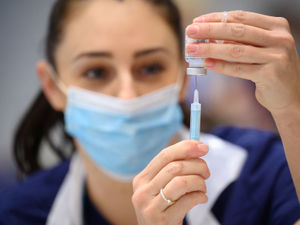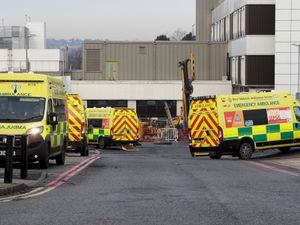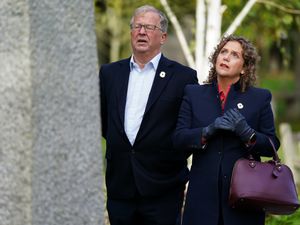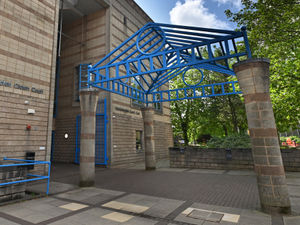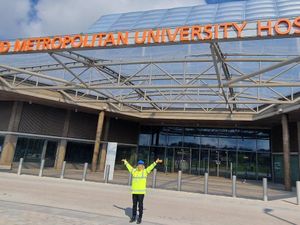Christmas party numbers should not be limited, says No 10
Business minister George Freeman had suggested festive gatherings could depend on how many are attending.
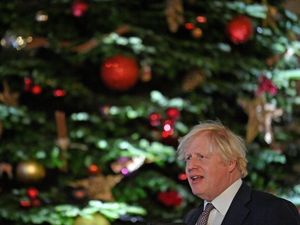
Downing Street has rejected a suggestion from a minister that staff parties should be cancelled or scaled back in the run-up to Christmas.
Coming just two days after the Prime Minister urged people to carry on as normal with their Christmas plans, business minister George Freeman appeared to muddy the waters by suggesting parties may depend on how many people are attending.
But No 10 slapped down the suggestion, saying restrictions on numbers were “not in the regulations”.
The Prime Minister’s official spokesman told reporters: “I think, as you know, Government advice does not set any limits on numbers.”
He added: “There is nothing in the rules to prevent anyone from having Christmas parties or gathering in that way.”
Asked whether Mr Freeman was wrong to imply that firms should consider not having a Christmas party, or to replace it with a smaller gathering due to the current coronavirus situation, the spokesman replied: “That is not in the guidance, it is not in the regulations.”
Boris Johnson’s spokesman repeated the same statement when asked whether Work and Pensions Secretary Therese Coffey had been right to advise people to avoid “snogging under the mistletoe” this Christmas.
No 10 denied there was any confusion, after the most recent pronouncement from ministers on Christmas party etiquette, but hospitality firms have accused the Government of being “inconsistent”.
The Prime Minister – who is due to receive his booster jab on Thursday – has set out the rules “clearly”, according to his spokesman, who added that the recent “limited” implementation of travel and mask-wearing restrictions were “precautionary” due to the discovery of the Omicron variant.
The remarks come after Mr Freeman, a minister in the Department for Business, Energy and Industrial Strategy (Beis), said his Whitehall festive party would not be “big”, and that his pre-Christmas drinks with staff in his MP office had been switched to Zoom.
“I can tell you, the Department of Business, we won’t be having a big Christmas party this year. Nobody would expect us to,” he told Times Radio.
He later told BBC Radio 4’s Today programme it was up to individual businesses to “make judgments on what is appropriate” in terms of staff socials.
“It slightly depends on the nature of the business. For many small businesses, four or five staff, who are working together every day any way, gathering to have a drink isn’t a big step up in risk,” he said.
“But some companies might normally bring hundreds of people in from around the world to a big party, and they may decide, this year, is that sensible given the pandemic and given where we are?”
The boss of pub group Young’s, which runs more than 270 sites across the UK, confirmed the business had seen some Christmas parties cancelled amid concerns over Omicron.
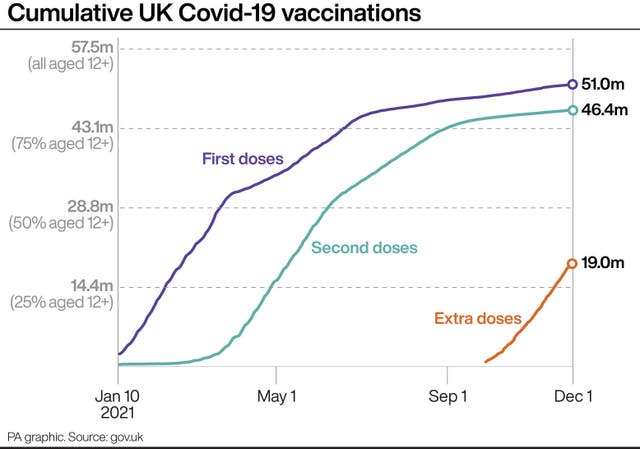
Criticising Government messaging regarding the variant, Patrick Dardis told PA news agency: “I think the messaging has been terribly confusing and inconsistent.
“One moment you have Jenny Harries telling people to avoid socialising and an hour later you have Sajid Javid saying the opposite.
“I think the messaging started as a complete over-reaction and, unsurprisingly, it has concerned some people.”
In a joint statement, UKHospitality, the British Institute of Innkeeping, and the British Beer & Pub Association urged those with plans “not to cancel”, with bookings down on previous years.
“The full range of hospitality venues across the UK would usually be experiencing their annual bookings bonanza at this time of year, but it hadn’t materialised even before Omicron was first detected,” the organisations said.
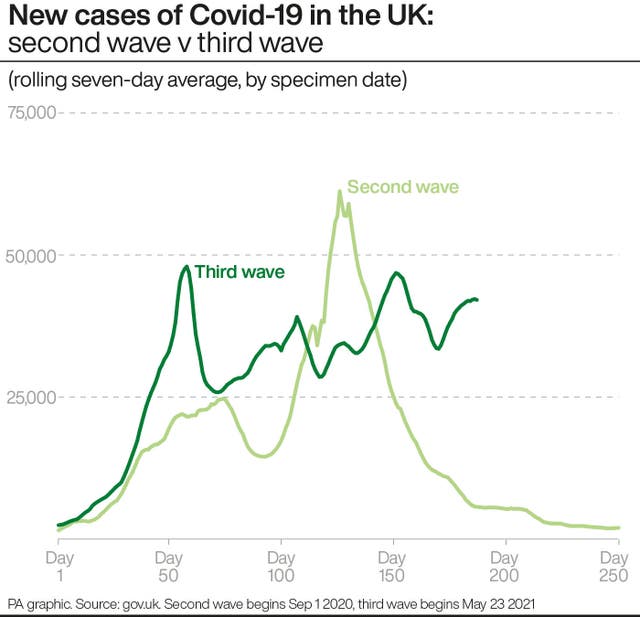
“The WHO (World Health Organisation) announcement that Omicron infections are generally mild, plus Government promptings for festive gatherings to go ahead as planned, offer a crumb of comfort, and could at least slow the slew of cancellations the sector has experienced in the week since Omicron was discovered.
“We’d therefore urge those with bookings not to cancel them, but to carry on and enjoy their festive season parties, safe in the knowledge that hospitality venues are doing everything they can to ensure people have a safe and fun Christmas and New Year.”
Speaking on Wednesday, WHO Covid-19 technical lead Dr Maria Van Kerkhove said there had been reports of Omicron cases which “go from mild disease all the way to severe disease”, but stressed it was still early days.
Royal College of Nursing Council chairwoman Carol Popplestone said Covid infections had already been on the rise before the new variant was discovered, and argued that “mixed messages” from ministers over Christmas plans could create “even more worry and confusion”.
Meanwhile, a scientist assessing vaccines said his group is ready to move “very quickly” on deciding whether children aged five to 12 should be given a Covid jab in the UK.
Professor Adam Finn, a member of the Joint Committee on Vaccination and Immunisation (JCVI), said it is waiting for approval from the Medicines and Healthcare products Regulatory Agency (MHRA) before making a judgment on whether vaccines should be offered.
The MHRA is expected to rule shortly on whether the Pfizer/BioNTech vaccine is safe and effective in young children. The vaccine has already been approved for youngsters in the EU and US.
But Prof Finn told BBC Breakfast there is a “law of diminishing returns” when it comes to young children, as they are largely protected from serious Covid-19.
It comes as the boss of pharmaceutical giant Pfizer, Dr Albert Bourla, said annual vaccines to tackle Covid-19 are likely to be needed.

